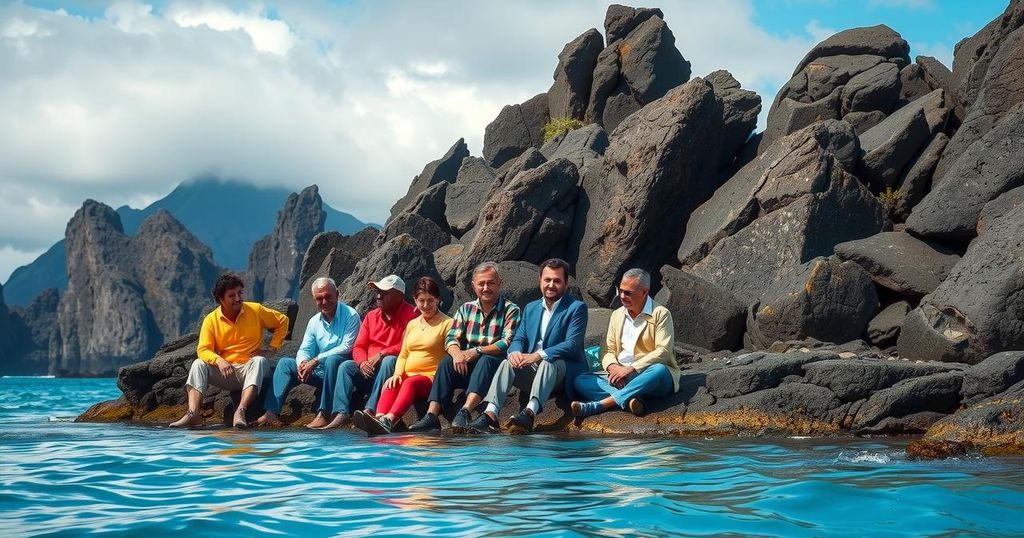Ecuador and Colombia Presidents Collaborate on Environmental and Border Issues in Galapagos

Presidents Daniel Noboa of Ecuador and Gustavo Petro of Colombia met in the Galapagos Islands to discuss environmental protection, border cooperation, drug trafficking, and energy integration. They toured the Galapagos National Park and addressed climate change and economic development, focusing on transforming the Mataje River area into a legitimate economic zone. Noboa and Petro emphasized the importance of collaboration for regional welfare.
On Sunday, Presidents Daniel Noboa of Ecuador and Gustavo Petro of Colombia convened at the Charles Darwin Research Station in the Galapagos Islands to address crucial matters regarding environmental stewardship. Their discussions primarily focused on border collaboration, environmental initiatives, drug trafficking, and energy integration between the two nations. During their visit, the leaders explored the Galapagos National Park to evaluate strategies against climate change and promote development along the Mataje River, which delineates part of their shared border.
President Noboa conveyed his appreciation for Colombia’s assistance during challenging times, particularly related to electricity sales, and emphasized the importance of establishing a working group to enhance the development of the border area, thus benefiting local inhabitants. In parallel, President Petro highlighted the Mataje River area’s vulnerability to organized crime, underscoring the need to transform it from a hub of illegal activities into a space fostering legitimate economies. He pointed out agricultural strengths, such as coffee and cocoa production, which could be harnessed to combat drug trafficking collectively.
President Petro’s visit to the Galapagos commenced on Saturday, with his next destination being Mexico to meet with President Claudia Sheinbaum. This meeting underscores the ongoing commitment of both leaders to secure a sustainable and prosperous future for their nations while addressing intertwined challenges.
The meeting between Presidents Noboa and Petro is significant, occurring in the unique ecological context of the Galapagos Islands, which are renowned for their biodiversity and serve as a critical area for conservation efforts. Environmental issues, particularly those exacerbated by climate change, have become a pressing concern in the region. The collaboration on initiatives related to border management, energy integration, and the fight against drug trafficking reflects shared interests and the growing interdependence between Colombia and Ecuador. The Mataje River, marking part of their border, is significant both strategically and economically, as both countries seek to improve the livelihoods of border communities while addressing crime and enhancing legal economic activities.
In conclusion, the meeting in the Galapagos Islands between Presidents Noboa and Petro signifies a collaborative effort to address pressing regional issues, ranging from environmental conservation to combating drug trafficking. By focusing on sustainable development and economic cooperation, both leaders aim to uplift their nations while ensuring the protection of their rich natural resources. The formation of a working group to tackle these challenges together represents a proactive approach to fostering stability and prosperity in the border areas.
Original Source: en.mercopress.com








